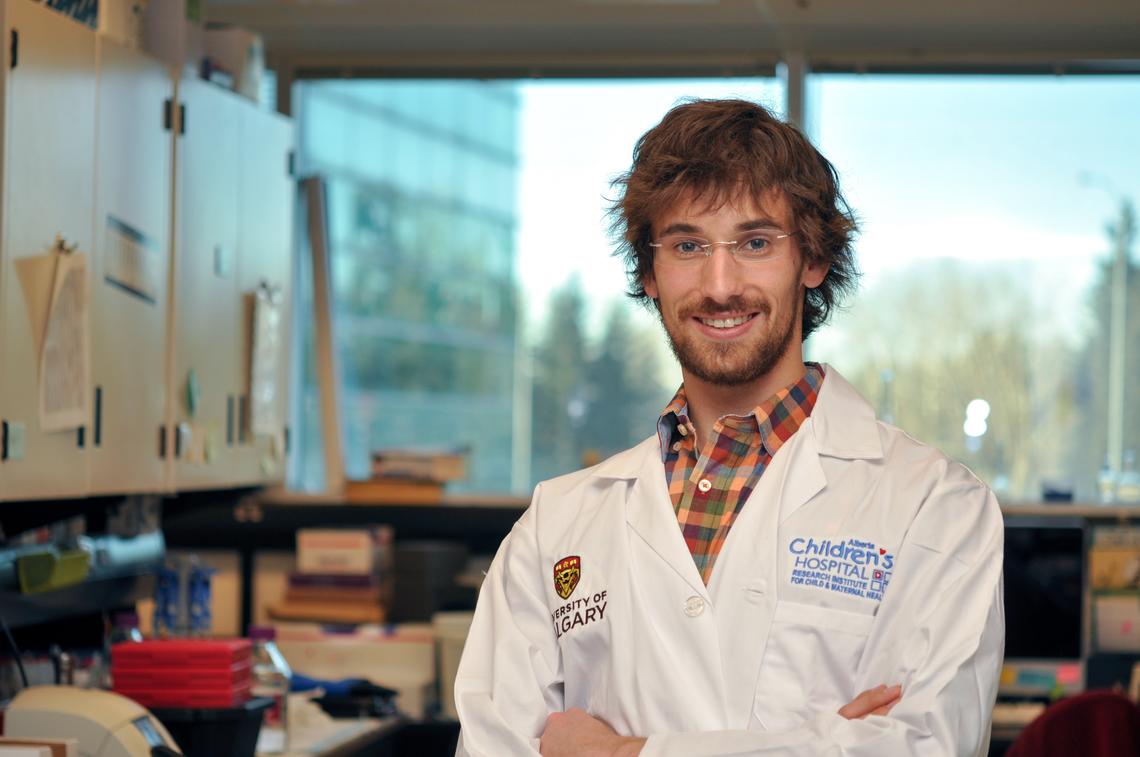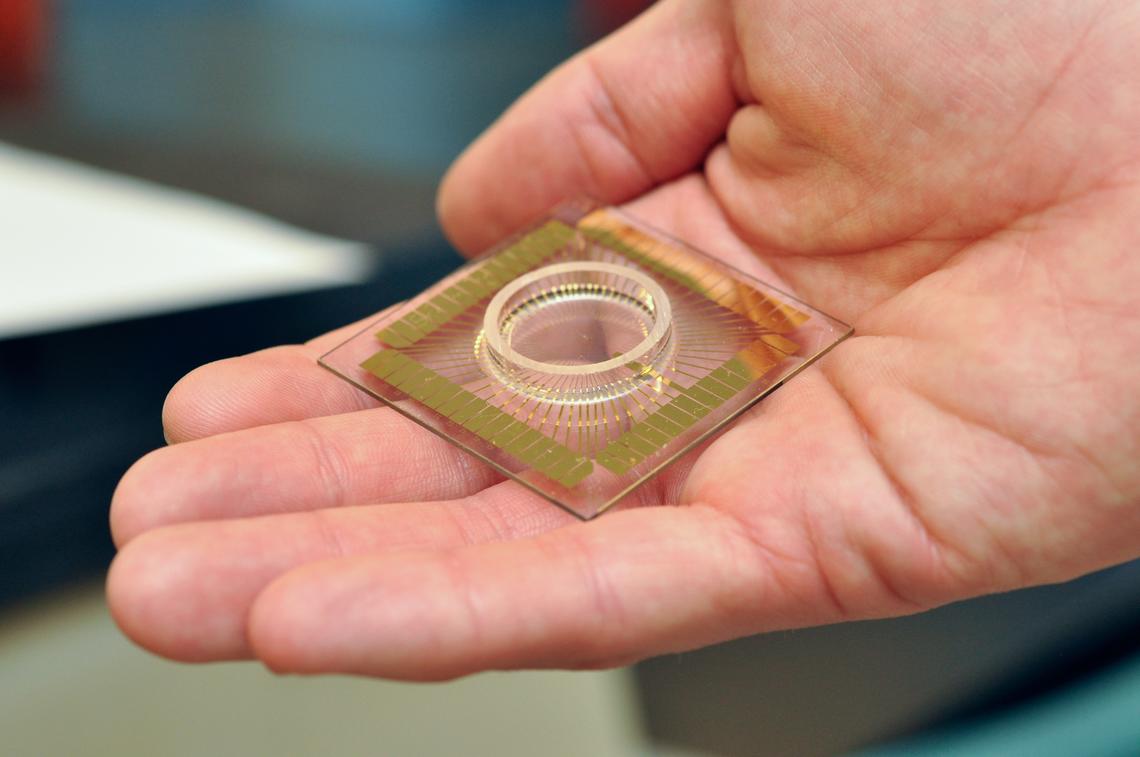Dec. 22, 2014
Biomedical engineering grad wins award to advance epilepsy research

Pierre Wijdenes discovered a passion for finding engineering solutions to health problems.
Alex Wilkinson
The Bordeaux region of France, known globally for its fine wines, is exporting a high-quality contribution to Calgary’s biomedical engineering community.
Pierre Wijdenes obtained his engineering master’s degree in Bordeaux, where he discovered his passion for finding engineering solutions to health problems. Now a graduate student at the Cumming School of Medicine, he is studying the diagnostic and therapeutic potential of the neurochip — a network of brain cells that reconnect on a silicon chip. He chose Calgary to pursue his studies because of the city’s vitality.
“I think Calgary has a buzz and an entrepreneurial spirit. And there is a possibility here to become a home for building biomedical devices to help patients,” says Wijdenes, who has just received a $75,000 scholarship from the Werner Graupe International Fellowship to support his research in the Biomedical Engineering Graduate Program. Only two students in Canada are awarded each year.
Neurochip to advance epilepsy research
Wijdenes is hoping to advance epilepsy research by showing how brain cells, interfaced with neurochips, can be studied for the aberrant activity patterns that give rise to seizures. The student uses a chip he built at the Advanced Micro/Nanosystems Integration Facility at the Schulich School of Engineering. His project has achieved an unparalleled high resolution recording of neuronal activities.
“Epilepsy is a difficult disease because every patient is unique; they each have their own pathology, and until now, clinicians have had no idea what the epilepsy neuronal cells were saying on their own, or in a network. I can now look at individual cells or small groups of brain cells and understand their language; it’s a bit like cracking the neural code of normal versus abnormal firing patterns,” says Wijdenes.
“In the future, we hope to use resected tissue from patients and analyze the tissue on a chip to understand the aberrant firing patterns and possibly find chemical compounds to mitigate seizure activity.”

Neurochip built at the University of Calgary.
Research at the Alberta Children's Hospital Research Institute
The graduate student meets with patients who suffer from epilepsy seizures not managed by medications alone. He assists with research at the Alberta Children’s Hospital under the direction of Dr. Jong Rho, co-supervisor and the chief of paediatric neurology.
“Epilepsy is a common neurological disorder that lends itself extremely well to the study of brain activity and computer microchip interfaces,” says Dr. Rho. “Pierre’s project holds great promise in elucidating neuronal activity at a level that has not been possible with existing techniques. The data arising from his studies are likely to provide great insights into the electrophysiological substrates underlying epileptic seizures.”
To gain business insight into building medical devices, the graduate student also enrolled and just completed the newly established entrepreneurial and innovation program in the Hunter Centre at the Haskayne School of Business.
And to top off a great year, Wijdenes just got word that his latest co-authored research has been accepted by the journal Scientific Report.
High calibre of students in Biomedical Engineering
Wijdenes is supervised by Naweed Syed, scientific director at the Alberta Children’s Hospital Research Institute, and faculty member in the Cumming School of Medicine, and mentored by Collin Dalton, adjunct professor of electrical and computer engineering in the Schulich School of Engineering, and by Campbell Teskey, professor in the Department of Physiology and Pharmacology.
“Pierre is an example of the high calibre of students we attract and train in Biomedical Engineering at the University of Calgary. He is an outstanding researcher, and moreover a true leader! He is leading a number of activities helping match students and industry in BME as part of our very active student society. We are pleased to support Pierre, and many other students like him, in our program,” says Michael S. Kallos, director of the Biomedical Engineering Graduate Program.
One of the University of Calgary’s strategic research themes is Engineering Solutions for Health: Biomedical Engineering. Biomedical engineering engages researchers from across several disciplines who train graduate students enrolled, among others, in the Biomedical Engineering Graduate Program and undergraduate students registered in a Biomedical Engineering Specialization.
